The Food Hall Epidemic
Are food halls problematic? Are they killing our cities? Are they great for small business? New video out now!
Published
Written by
Nathan Davenport

What’s with all these food halls?
Food halls. The breeding ground for corporate lunches and pretentious family outings.
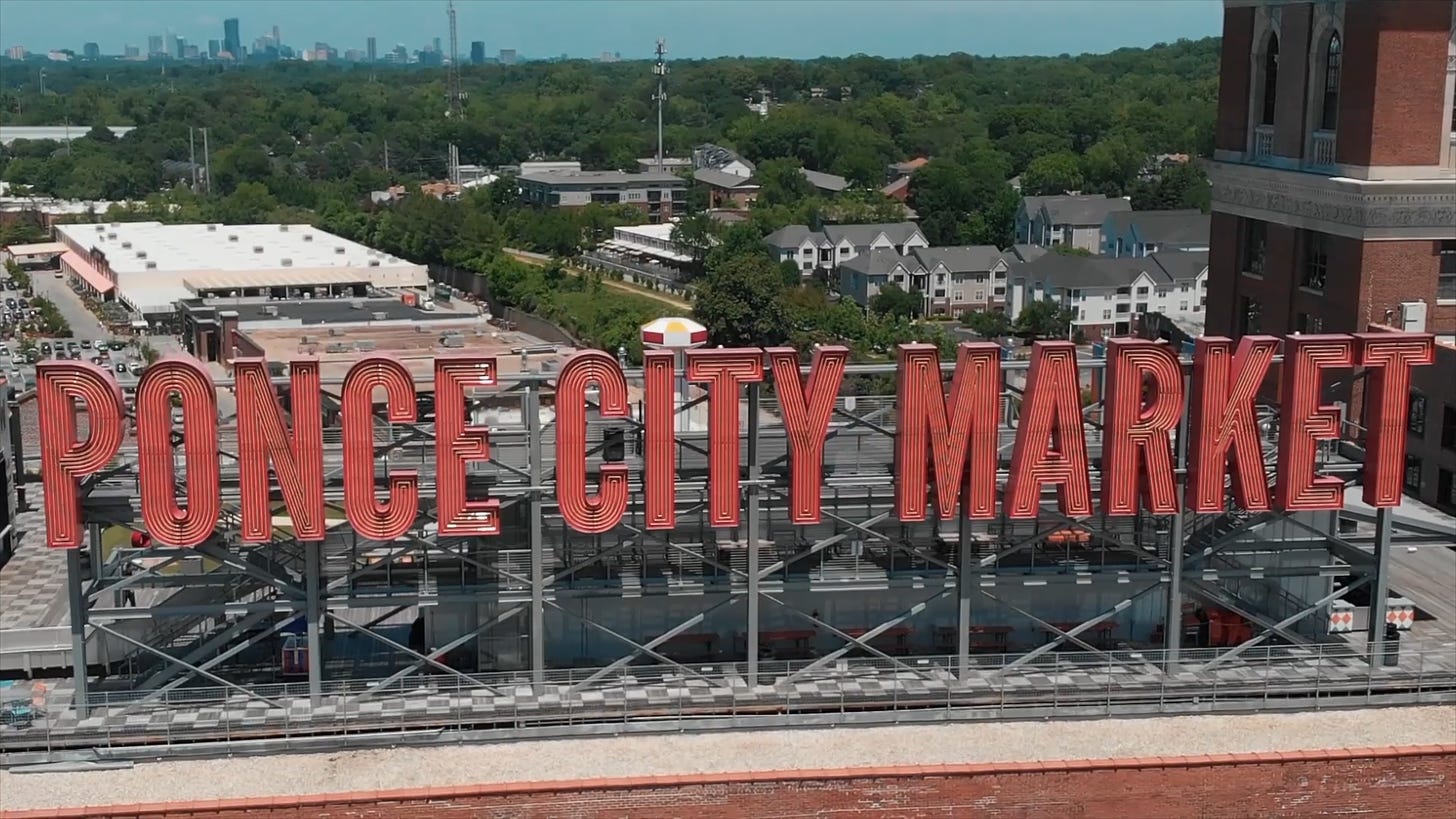
It seems like these places are just everywhere, and more popular than ever. Since 2015, the number of food halls across the US has increased from a mere 70 in 2015, to a mouthwatering 400 in 2020 across the country.
I've been wondering: why the hell are these establishments so popular? Could these food halls actually be causing more problems than they create? I'm Nathan, with the answers to these questions and more, coming up next.
What the hell is a food hall?
So what is a food hall?
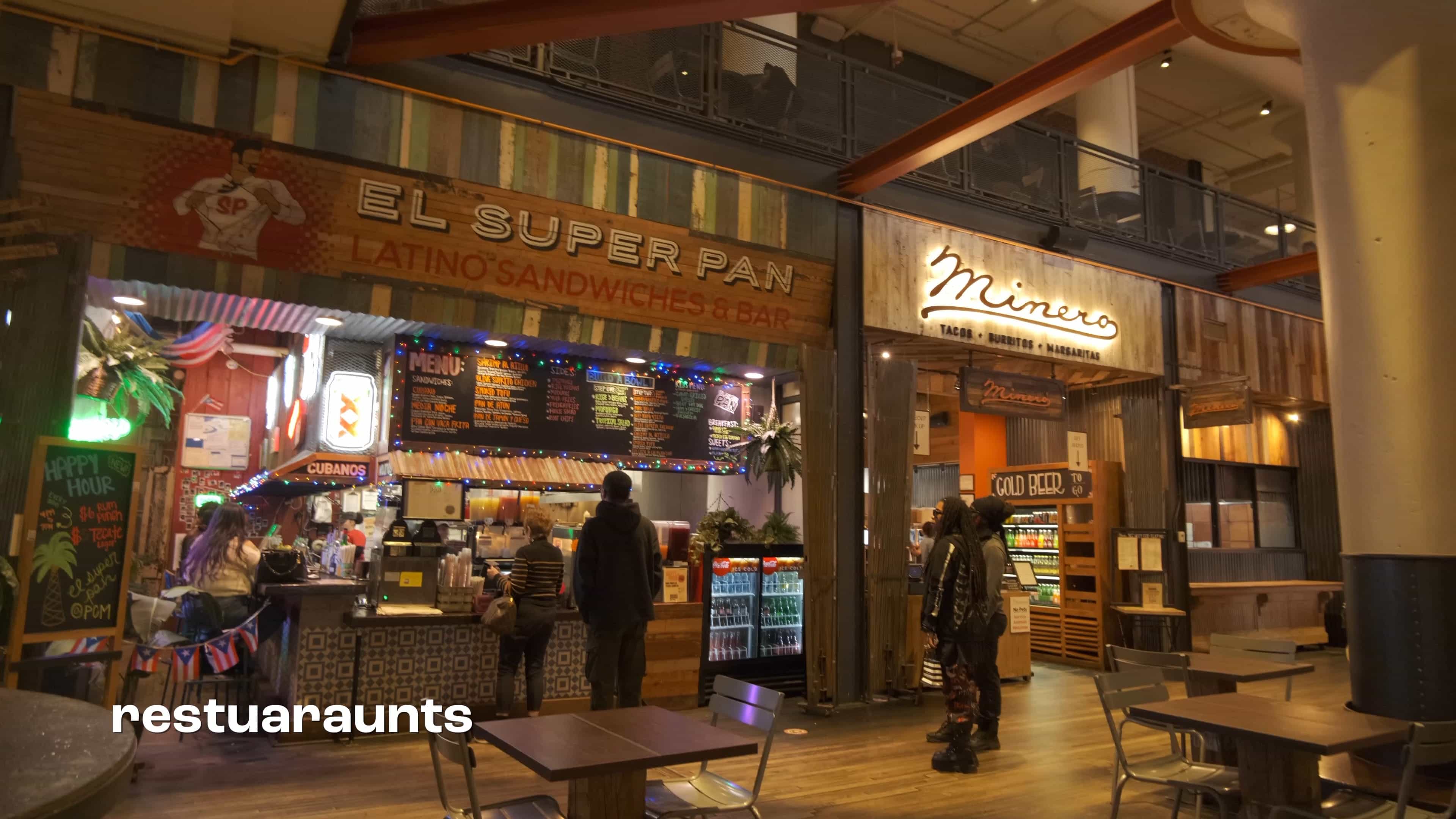
These places are full of restaurants, clothing stores, small businesses, bars, and shops.
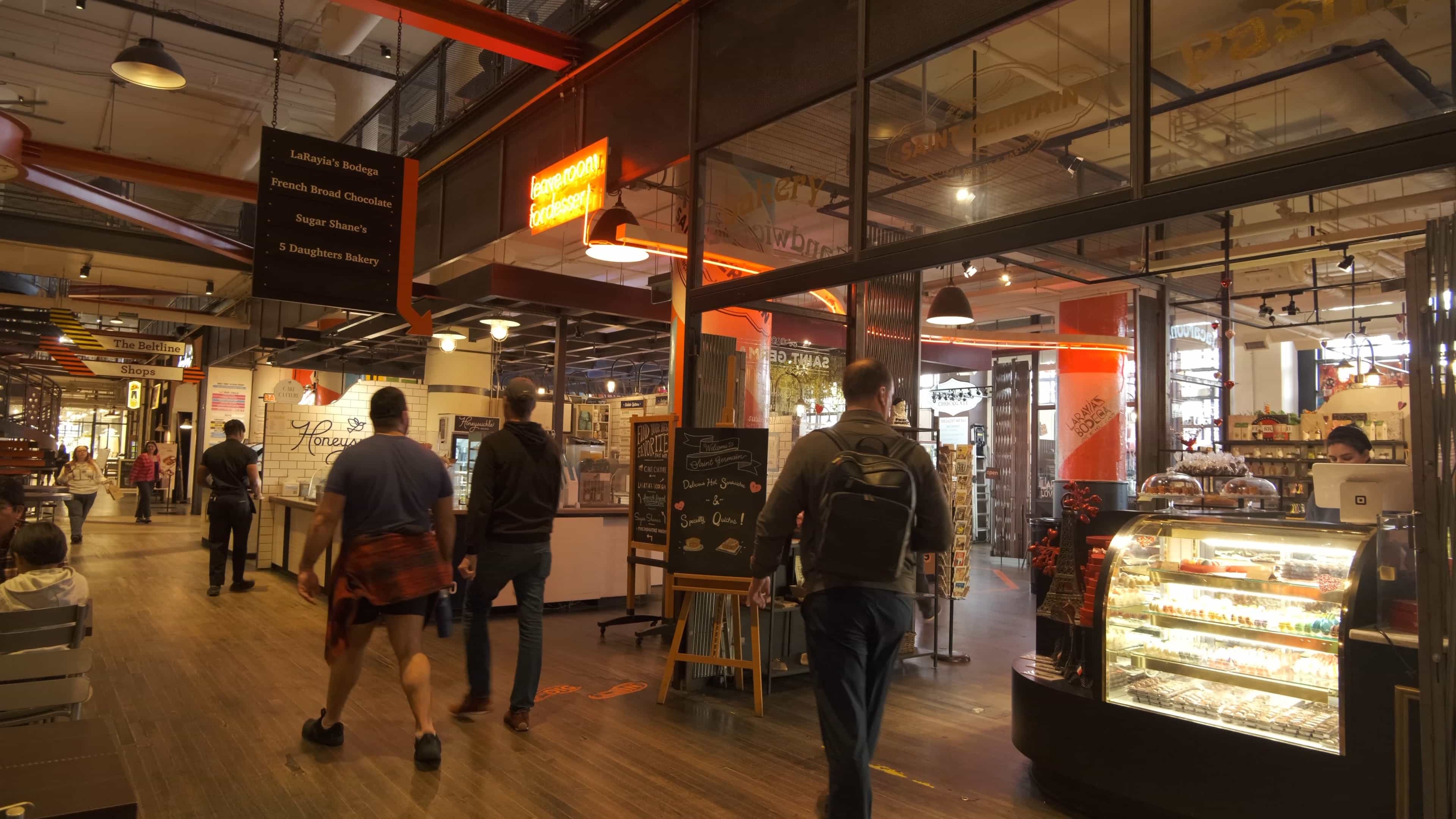
The death of the American Mall
Now, food halls aint nothing new. The modern food hall is loosely based on the concept of old world markets. Places where locals sell produce, groceries, independently made goods, and dine.
But American cities, this concept was dumbed down to fit in your decaying local mall, your dingy high school, or your whitewashed company food hall.
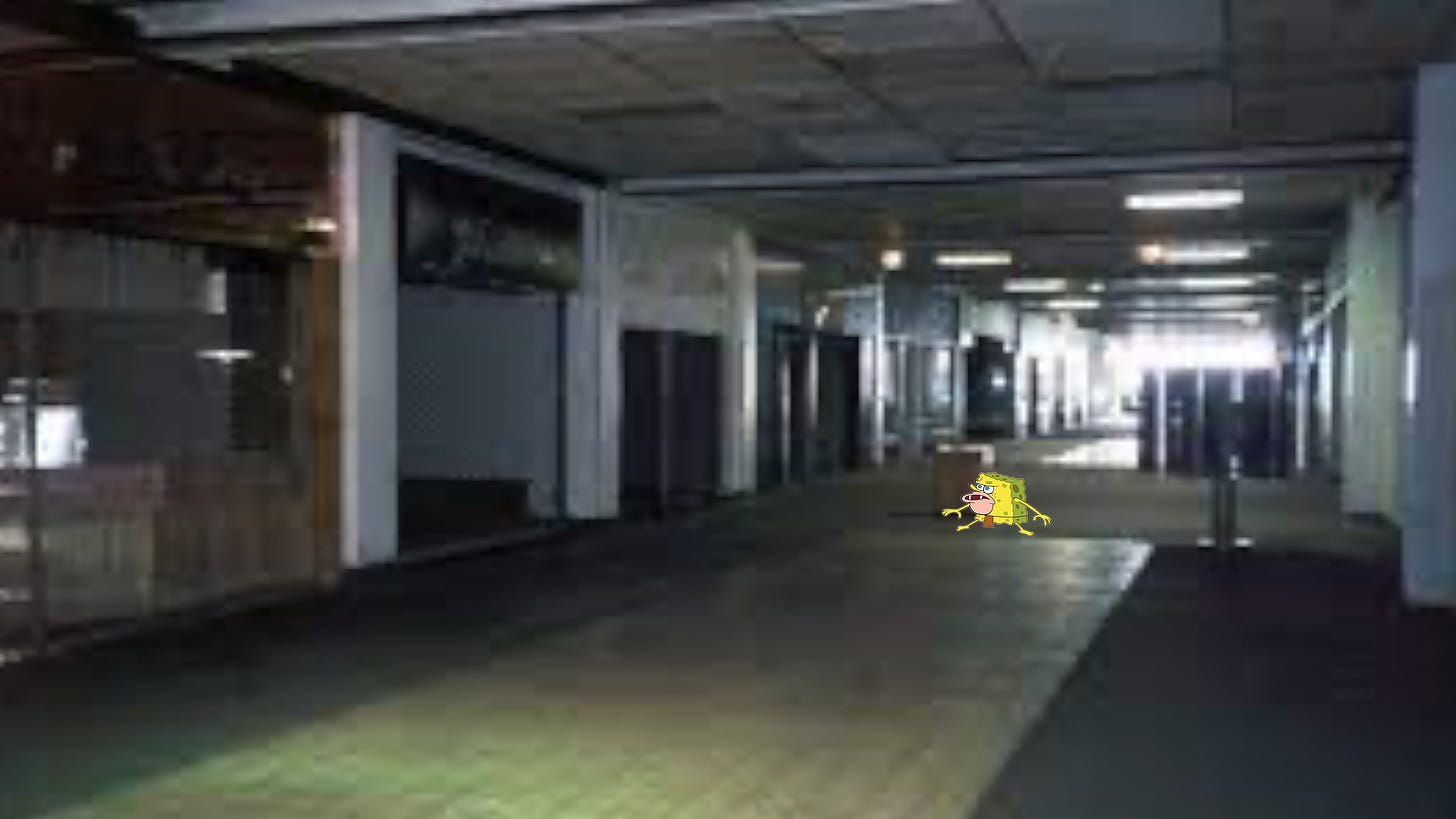
Typical American Mall
Today’s modern food hall is different breed. The premise is the same: bring together restaurants in a large communal dining area. The twist: all businesses are locally owned, small business.
It's pretty great for small businesses
In many ways, this concept is great for both the participating businesses and management.
Prices are typically much lower than standard brick and mortar, and leases are much more flexible and less binding, all while bringing consistent foot traffic and amenities.
Sound familiar? It's the modern food truck, providing a similar start up cost without a lot of the challenges that face the food truck industry. Shockingly, it costs five to ten times less to open a location in a food hall or food truck, over an independent location.
Food halls are really disrupting the food truck trend, making it easier to start a new restaurant or allow an existing food truck business to expand into a fixed space.
Community space
The idea's nice - bring together local businesses, and create a communal space for the neighborhoods they're a part of. And in a lot of ways, they can do that.
The food hall is the natural progression of the classic American mall. American car-dependent suburbia lacked a true third place -- and the mall was designed to fill this void, providing entertainment, shopping, dining, and more in a communal space.
While malls were originally envisioned to be mixed used places, featuring housing and dining, they unfortunately ended up being mostly commercialized retail spaces. Today, online shopping has practically killed physical retail, leaving the American mall a liminal places in modern culture.
Food halls aim to re-attract the audience that has been left behind by the traditional mall. Since then they've successfully made the food court attractive to the general population, by focusing on what online can't recreate: hospitality , using unique attractors such as international cuisine and small business.
The problem
But in itself - this is the problem.
Here’s Atlanta’ Sweet Auburn Municipal Market, which is a rarity these days. Its the only permanent farmer’s market type location that still exists in the city, and has been around since 1923.
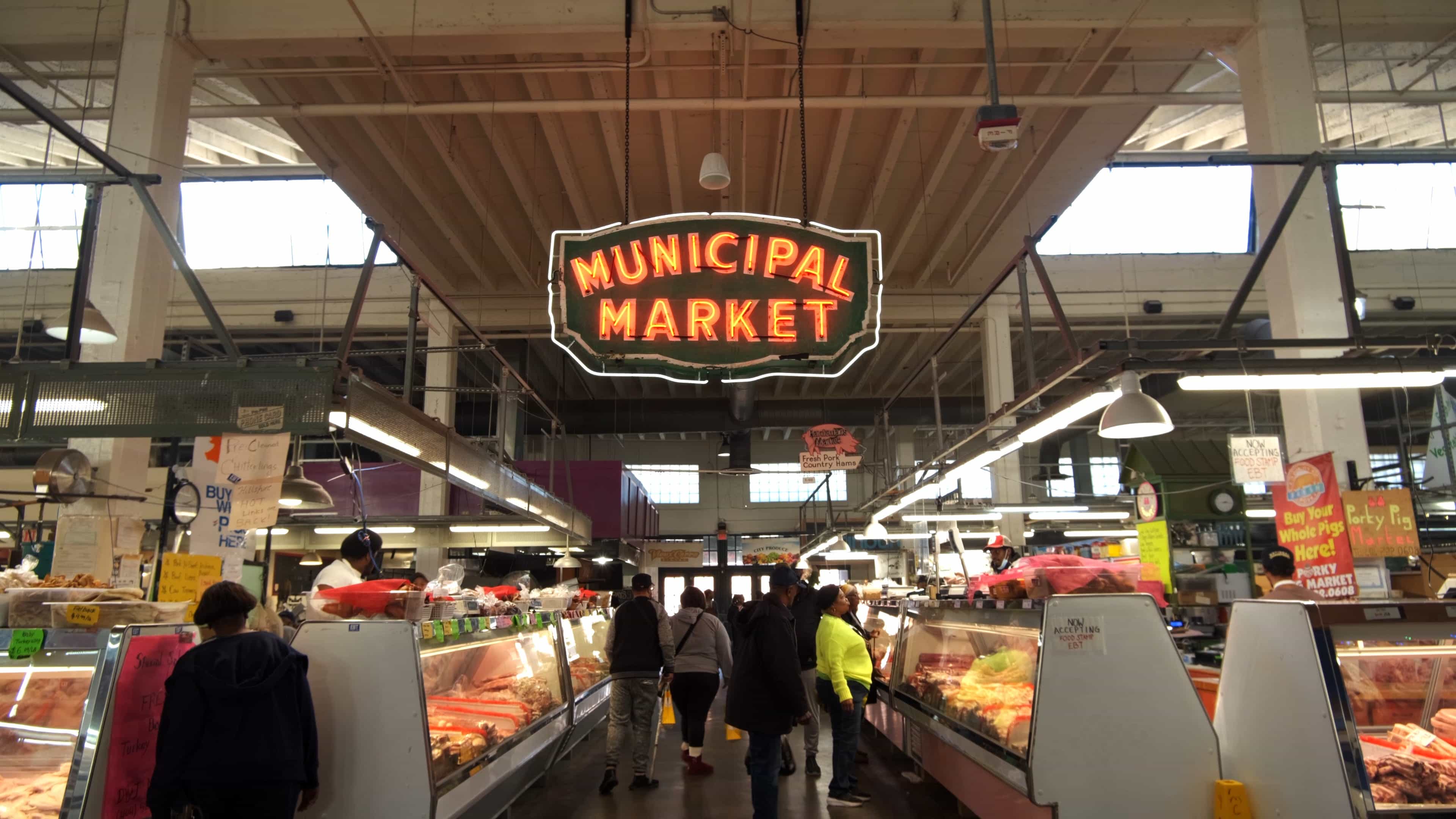
Sweet Auburn Municipal Market, Atlanta GA
This place is great because its community organized, small business operated, and a non profit. Its genuinely a place that contributes to the resident of the city.
How? Let’s check it out.
Look, instead of expensive restaurants and instagrammable retail, they’re selling groceries, fresh produce, fish, meats, and more.
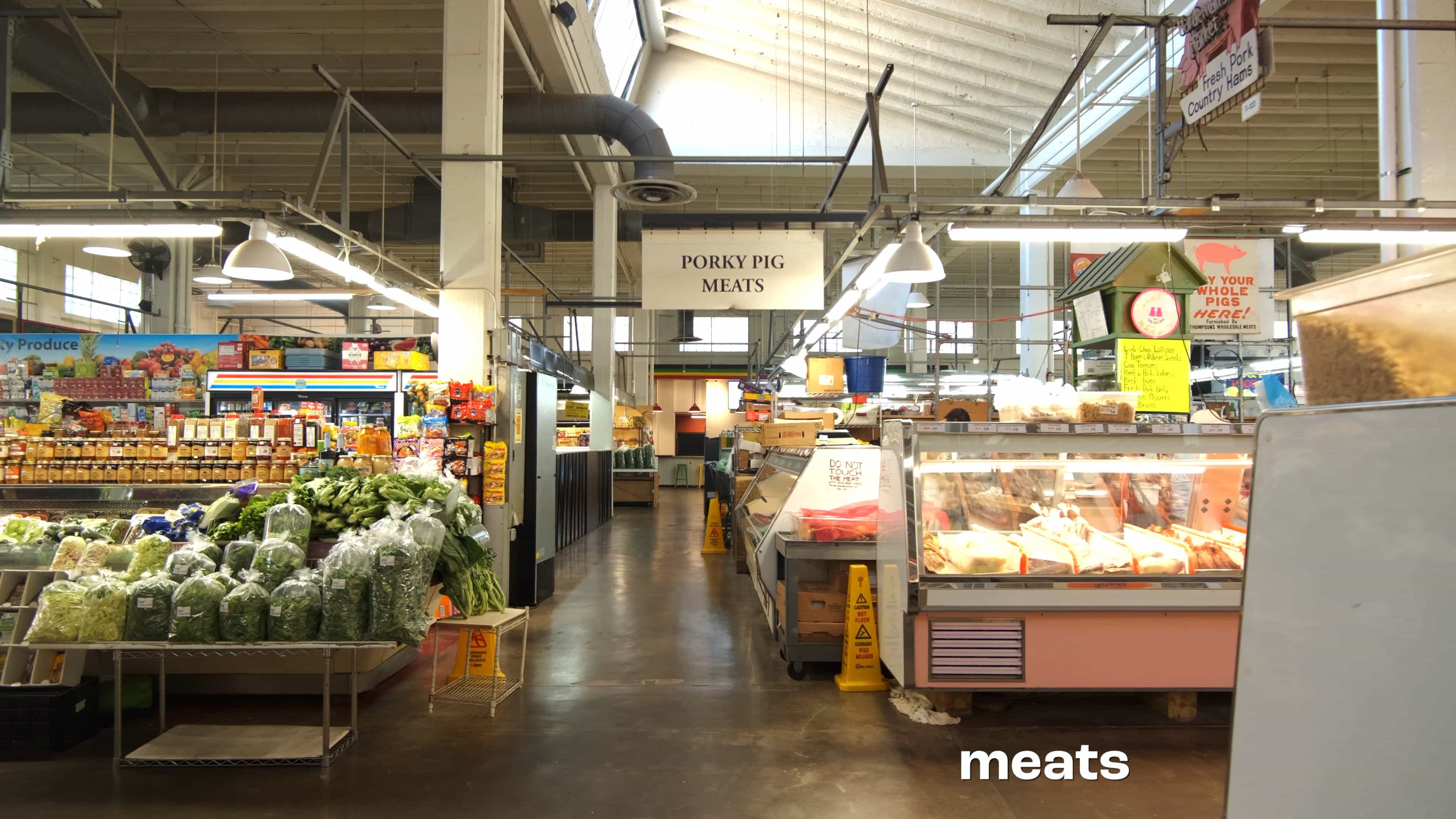
This is such a contrast to modern food halls. These places are designed like, well, malls.
This place provides so many useful services that cater to residents, while food halls, seem to cater more so outside the neighborhood, feeling almost like a tourist attraction.
In some ways, it's hurting our cities in the long run
This might be fine in suburbia, which the mall model was originally for, but in central city locations, this can pose a bit of an issue.
See, lets look at Edgewood Ave.
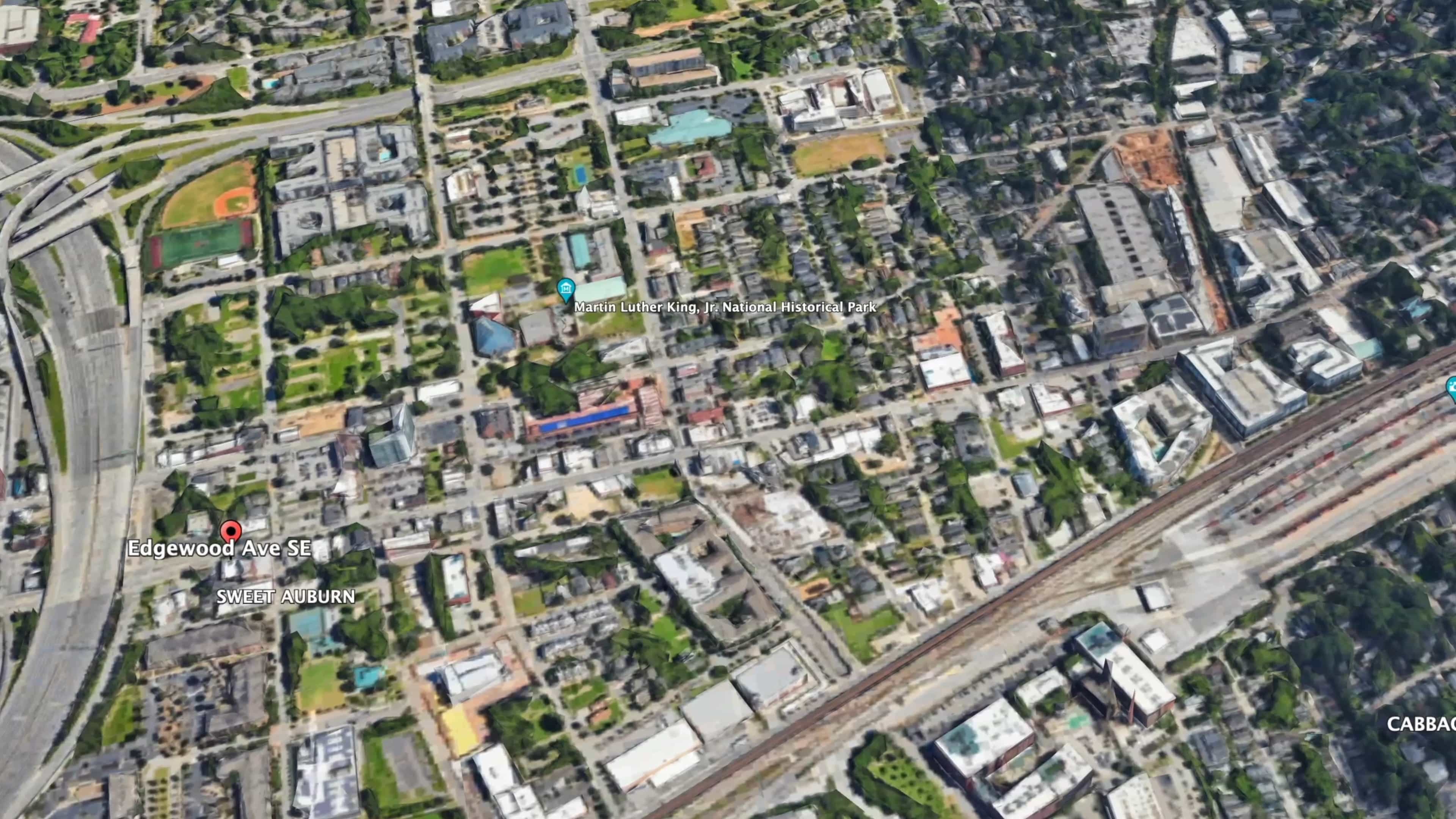
Edgewood Avenue (Sweet Auburn, Atlanta)
It's starting to feel like every local business we love and cherish is disappearing by the minute.
Once Sweet Auburn's busiest Black main street, and more recently a popping nightlife district, these days the street isn’t faring as hot.
Just this past month, we saw multitudes of long standing businesses close here: Noni's, Biggerstaff, Georgia Beer Garden, Amazza Pizza, and more.
See, The Beltline runs through Edgewood Avenue right here, tapping away foot traffic to ever growing Krog Street Market, a food hall that opened a decade ago in 2014.
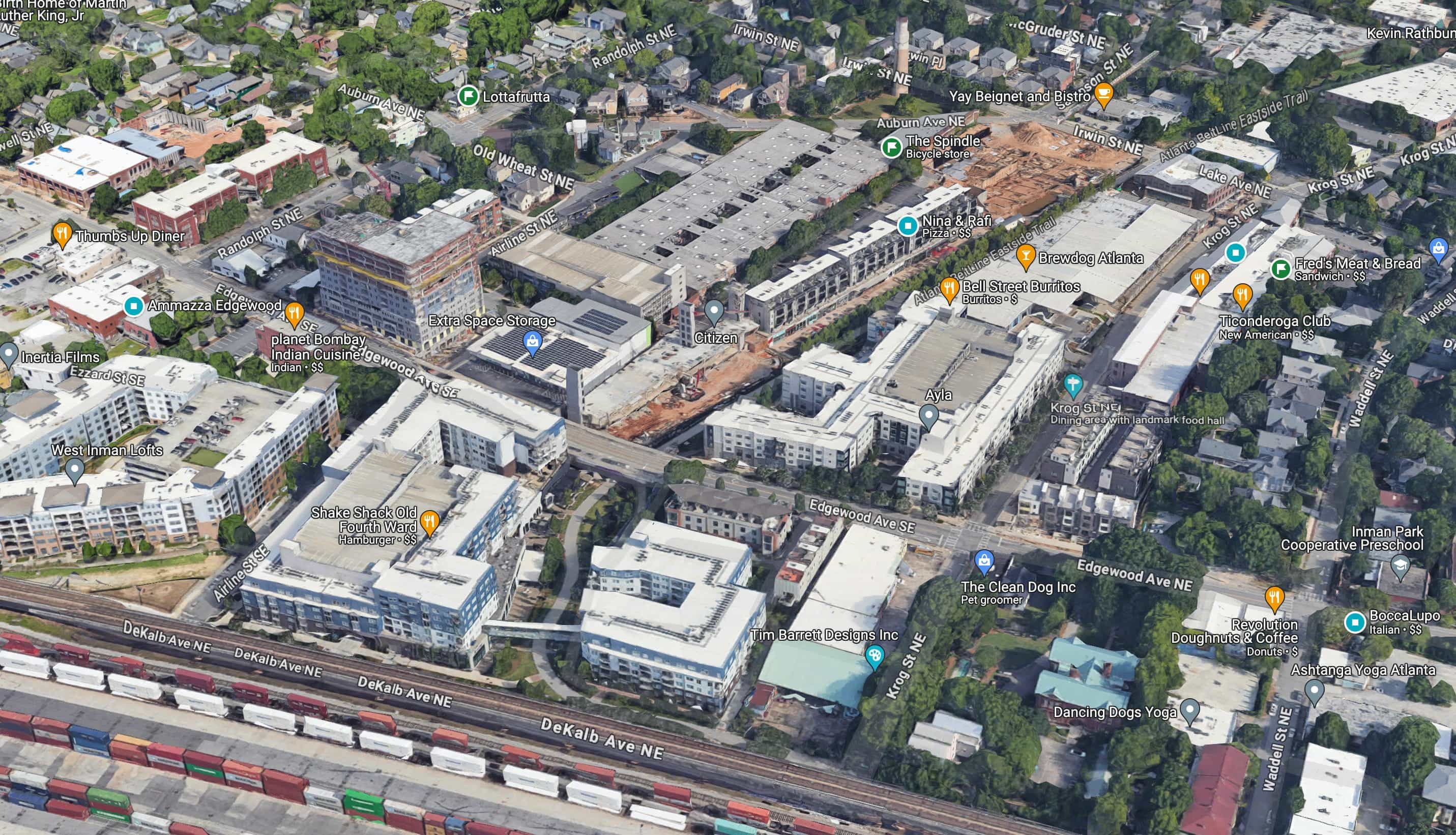
Eastside Beltline and Krog ~~Street Market~~ District intersecting Edgewood Ave
I don't think this is a coincidence. The Beltline has driven up property values throughout this area, and Krog Street Market is a driving force of this appraisal.
Why would anyone leave the pedestrian space of the Beltline to walk on Edgewood Avenue?
Priced Out
All of this really represent a much larger symptom of the overall entrepreneurial landscape. The success of food halls represents a critical problem happening in our cities: the increasing difficulty to afford and operate out of traditional real estate.
Inherently, is all of this a bad thing? One one hand, these places are bring new levels of density that we haven't seen before.
I love seeing the destiny pop up, we need denser housing units desperately to fight rising cost of living, and density is good for neighborhoods.
But on the other hand. Krog Street District and the Beltline have completely zapped some of the surrounding neighborhoods of foot traffic. Edgewood Avenue into Downtown is a ghost town, and it just doesn't get the same attention as the new flashy corridor of the Beltline and Krog Street Market.
Subsidization
Now don't get me wrong, I'm not a NIMBY. Places like Krog and Ponce are bringing lots of density to the city that is much needed. But I do think it's worth realizing that these places don't work in a vacuum.
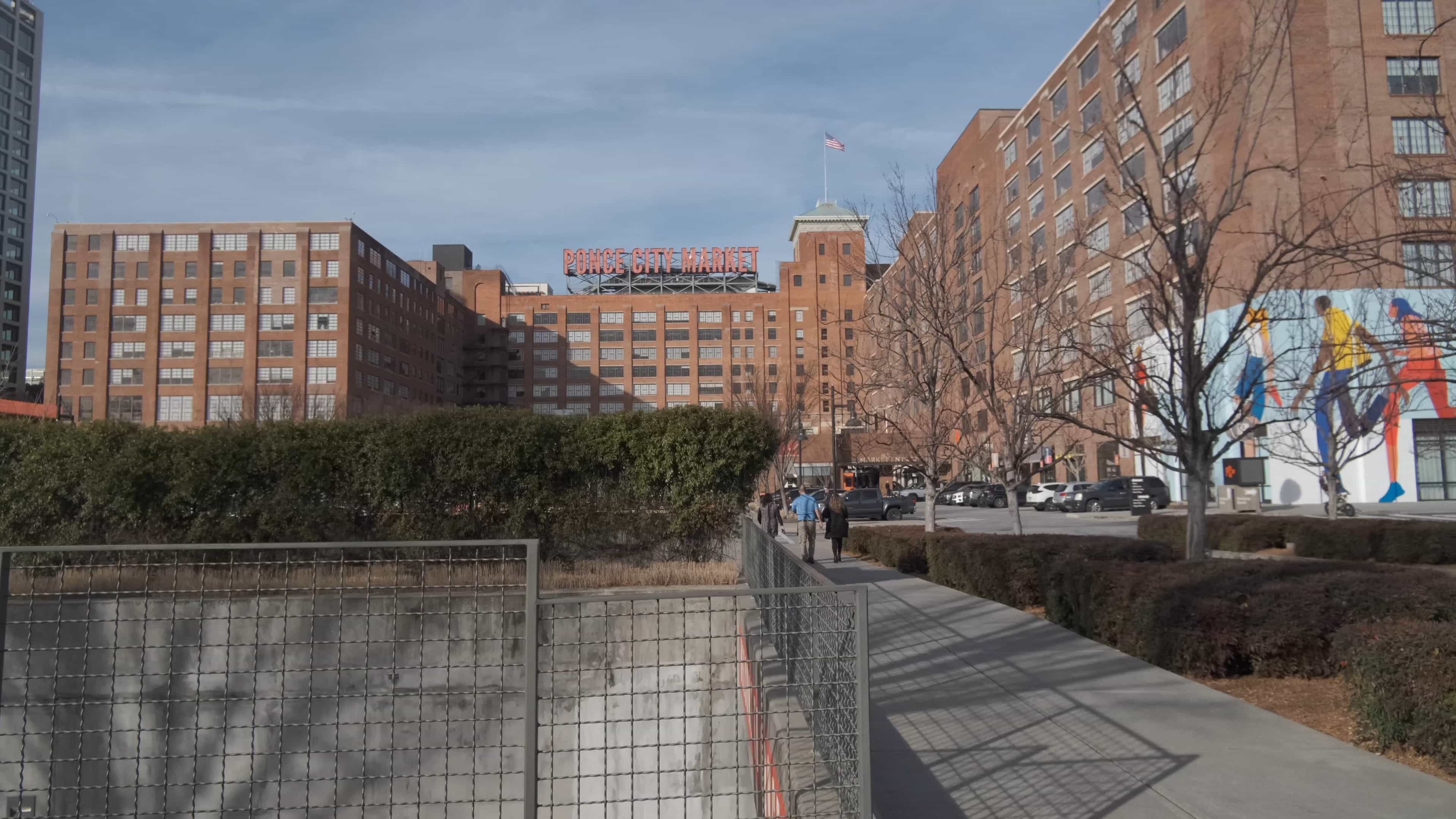
Ponce City Market, 2024
Ponce City Market in particular is infamous for not being property taxed adequately for most of its existence. Yes, you heard that right, Jamestown's entire operation had its property taxes froze at 2014 levels up until 2020, while the property’s valuation rose to over a billion dollars.
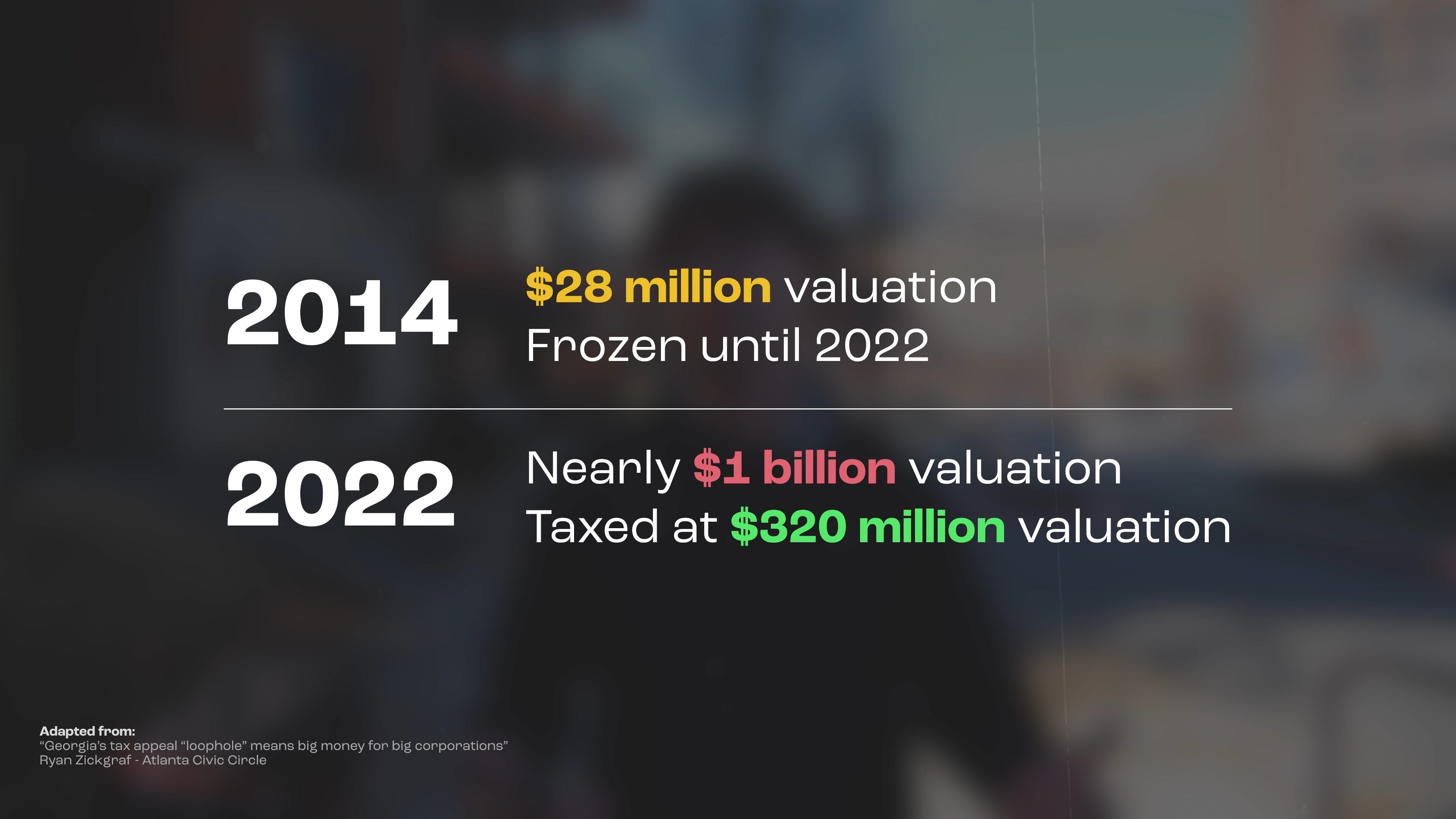
Like, it's a ridiculous number, amounting to only around a quarter million a year , when it should’ve been nearly 20 million.
“Ponce City Market pays a quarter-million dollars in property taxes when it should be paying close to $20 million. It’s paying, like, 1/100th of what it should pay.“
(Dan Immergluck via Atlanta Magazine)
And still, despite the company's valuation at $11 billion , Jamestown has continued to continue appealing property tax valuations for the recent expansions being constructed today.
While I understand wanting to encourage development in the city limits, it doesn't make any sense for immensely successful places like Ponce City Market to still operate so subsidized. This is money that pays for our school systems, our public services, and more.
For such a "pro-business" state like Georgia, it really makes you wonder why the state doesn't do the same for actual neighborhood focused small businesses.
We have got to start asking -- who are these places for?
Concluding
I did this one a little bit differently than my other ones, so let me know what you think! I'm trying to keep it from getting stale.
Thanks for reading.
References
-
CBS Sunday Morning. "Food Halls: A World of Flavors Under One Roof." YouTube, 24 Nov. 2019, youtube.com/watch?v=OiAf7dFy5Vk.
-
Atlanta Civic Circle. "Georgia's Tax Appeal Loophole Means Big Money for Big Corporations." Atlanta Civic Circle, 16 Nov. 2023, atlantaciviccircle.org/2023/11/16/georgias-tax-appeal-loophole-means-big-money-for-big-corporations/.